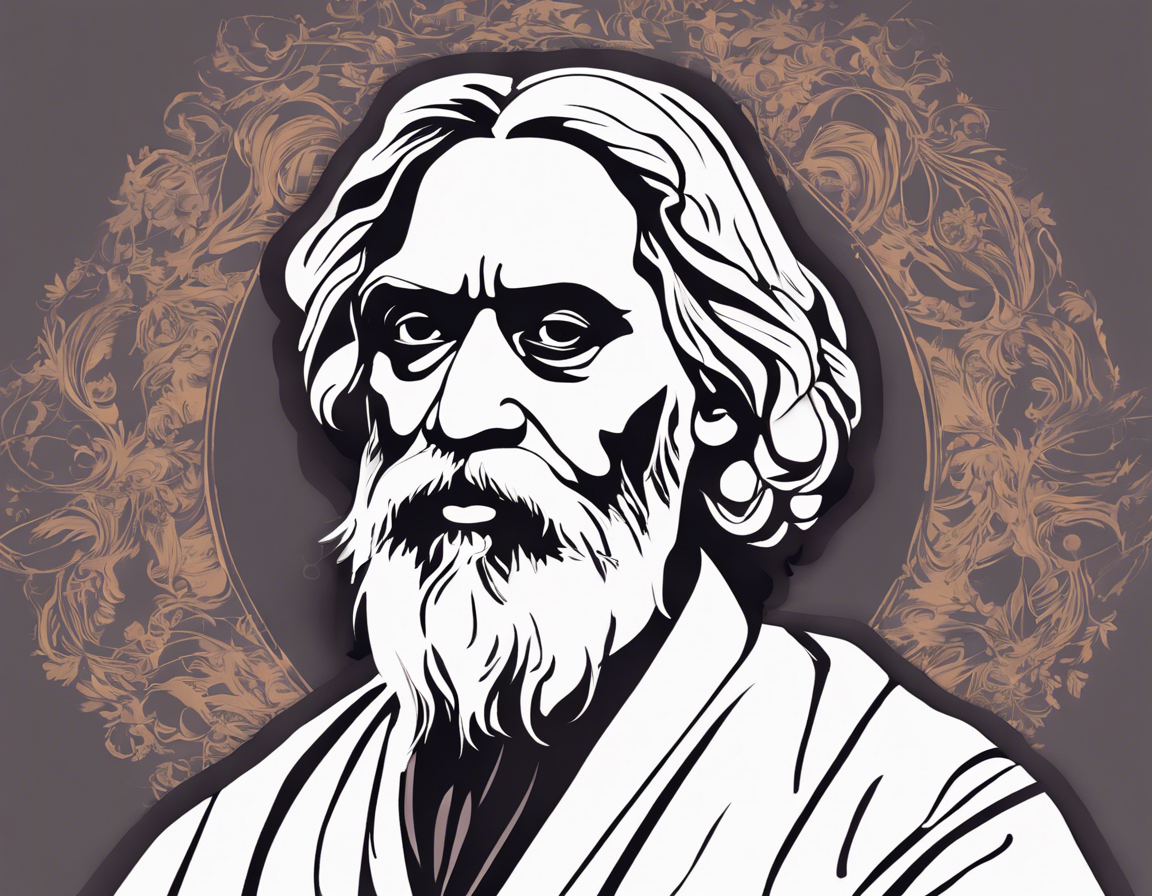Rabindranath Tagore, the first non-European Nobel laureate in Literature, was a polymath – a poet, musician, and artist who reshaped Bengali literature and music in the late 19th and early 20th centuries. Born on May 7, 1861, in Calcutta, India, Tagore became one of the towering figures of the Indian Renaissance. His contributions to literature, music, and art continue to influence generations worldwide.
The Life of Rabindranath Tagore
Rabindranath Tagore’s early life was marked by tragedy when he lost his mother at a young age. Despite this, he grew up in a large, culturally rich family that nurtured his talents. Tagore began writing poetry at a tender age, which later evolved into his most celebrated work.
In 1883, Tagore published his first poetry collection and later traveled extensively, building connections across the globe. He was a proponent of anti-nationalism and universalism, believing in the power of cultural exchange to foster understanding among nations.
Throughout his life, Tagore composed hundreds of songs, wrote plays, and painted extensively. His works often delved into themes of love, nature, spirituality, and nationalism. Tagore’s masterpiece, Gitanjali (Song Offerings), a collection of poems, brought him international acclaim and the Nobel Prize in Literature in 1913.
Tagore’s Philosophy and Legacy
A central theme in Tagore’s works was his emphasis on the ideal of harmony – the harmony of individuals with nature, with one another, and within oneself. His vision of unity and oneness resonates throughout his poems, songs, and stories.
Tagore’s legacy extends beyond literature. He was a social reformer, advocating for education, women’s rights, and cultural revival. Tagore founded Visva-Bharati University in Santiniketan, a place where students could receive education in a natural, holistic environment.
Free Biography PDF Download
For those interested in delving deeper into Rabindranath Tagore’s life and works, a free biography PDF can provide invaluable insights. Such biographies offer a comprehensive overview of Tagore’s journey, his major works, and the socio-cultural milieu that shaped his ideas.
By understanding Tagore’s life, readers can better appreciate the depth and breadth of his contributions and the enduring relevance of his philosophies in today’s world. Exploring Tagore’s biography can be a transformative experience, inviting readers to reflect on their own beliefs, values, and aspirations.
Frequently Asked Questions (FAQs)
1. Why is Rabindranath Tagore famous?
Rabindranath Tagore is famous for his contributions to literature, specifically his poetry and songs. He was the first non-European Nobel laureate in Literature.
2. What is Rabindranath Tagore’s most famous work?
Tagore’s most famous work is “Gitanjali” (Song Offerings), a collection of poems that won him the Nobel Prize in Literature in 1913.
3. What is Visva-Bharati University, and why is it significant?
Visva-Bharati University, founded by Rabindranath Tagore, is renowned for its emphasis on holistic education and cultural exchange. It remains a center for art, music, and literature.
4. How did Rabindranath Tagore contribute to social reform?
Tagore was a social reformer who advocated for education, women’s rights, and cultural revival. He believed in the power of art and literature to bring about social change.
5. Where can I find free PDF downloads of Rabindranath Tagore’s works?
Several websites offer free PDF downloads of Tagore’s works, including his poetry, novels, and essays. Project Gutenberg and the Internet Archive are good places to start.
6. What are the major themes in Rabindranath Tagore’s works?
Tagore’s works often explore themes of love, nature, spirituality, human relationships, and the pursuit of truth and beauty. His writings reflect his philosophy of harmony and unity.
7. How did Rabindranath Tagore influence Indian culture and society?
Tagore’s influence on Indian culture and society was profound. He revitalized Bengali literature, reshaped Indian classical music, and left a lasting impact on education and social reform.
8. What was Rabindranath Tagore’s view on nationalism?
Tagore was critical of narrow nationalism and believed in a broader concept of universalism, where cultures could coexist and learn from one another. He emphasized the importance of transcending borders and building connections.
9. How can I apply Rabindranath Tagore’s philosophies in my daily life?
You can apply Tagore’s philosophies by embracing the values of harmony, love, and oneness. Practicing kindness, respecting nature, and appreciating cultural diversity are ways to embody Tagore’s ideals.
10. What is Rabindranath Tagore’s enduring legacy?
Rabindranath Tagore’s enduring legacy lies in his profound literary works, his advocacy for social reform and education, and his philosophy of universalism and harmony. He continues to inspire generations worldwide.

